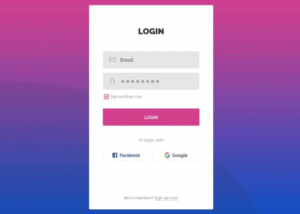127.0.0.149342 – Know al Localhost IP Address

127.0.0.149342
If you come across “127.0.0.1:49342,” it might appear to be a random sequence of numbers. But this string is an essential part of networking, particularly for tech-savvy people and developers. Let’s discuss what it is and why it’s important and how to make use of it efficiently.
| Aspect | Details |
|---|---|
| IP Address | 127.0.0.1 (Loopback IP address of the machine local to it) |
| Port Number | 49342 (Ephemeral/dynamic port allocated to be used for a limited time) |
| Purpose | Local communication and testing is made easier without exposure to the outside world. |
| Common Usage | Web development, testing of applications debugging, local server hosting |
| Accessibility | Only accessible on the same device, is not accessible from other networks. |
| Security Features | Protects against unauthorized access from outside by default |
| Associated Terms | Localhost, Loopback, Internal Networking |
| Port Range for Dynamic Use | 49152-65535 (IANA recommended dynamic port range) |
| Tools for Monitoring | Wireshark, Netstat, Tcpdump, Command-line utilities |
| Potential Issues | Port conflicts, misconfigurations blocked ports due to firewalls |
| Resolution Methods | Restart the application, change port number, verify firewall rules |
| Exploitation Risks | The smallest connection to localhost. greater when exposed externally |
| Development Tools Used | Docker, Virtual Machines, Localhost Simulators |
| Connection Type | Protocols TCP/UDP to facilitate local application interaction |
| Example Use Case | Host a local web server at 127.0.0.1:49342 to test an API |
What is 127.0.0.1:49342?
Introduction to IP Addresses and Ports
What are IP addresses?
An IP address acts as an electronic address for devices which allows them to identify and communicate with each other via the network. Without it the internet we have today would not exist.
What are port numbers?
Ports function as individual doors on devices, each one leading to a particular app or service. They make sure that the correct messages reach the appropriate processes.
The Special Role of 127.0.0.1
Loopback and Localhost Explained
127.0.0.1 is also known as the loopback IP address, that is, it reroutes network traffic back to same device. This is the reason why it’s often referred to with “localhost.” It’s a completely self-contained method for computers to communicate with itself.
Common Uses of Localhost
Developers often use 127.0.0.1 to test web-based apps to ensure that everything is running smoothly without exposing the wider internet.
Breaking Down 127.0.0.1:49342
Understanding the Structure
IP Address Component
127.0.0.1 belongs to the reserved IPv4 block of addresses and is a reference to the machine that is local to it.
Port Number Component
The port number 49342 can be described as an intermittent code that is assigned dynamically to be used for a short period by an service or application. service.
Why Do We Use 127.0.0.1 using Port Numbers?
Application Communication
The applications running in your system have to communicate with each other internally. The assignment of specific ports, such as 49342 permits different services to share data, without interfering with each other.
Development and Testing
Localhost is the platform used by developers to run their applications. It has special ports for running and test applications prior to deploying them into production environments.
Common Scenarios for 127.0.0.1:49342
Web Development and Testing
Running Local Servers
Web developers typically make use of 127.0.0.1 with ports such as 49342 in order to run local versions of their websites or APIs. This allows them to verify changes in real time without risking exposing their work in the first place.
Debugging Applications
By logging into specific ports on localhost, developers are able to detect issues and fix them effectively. Tools such as browser developer consoles, or plugins for debugging are commonly utilized in tandem.
Security and Access Control
Preventing Unauthorized Access
Utilizing 127.0.0.1 makes sure that just the local machine is able to gain access to services running at that address, thereby decreasing security risk.
Use in VPNs and Tunneling
Localhost addresses typically form the foundation of secure communication used in VPNs or tunneling protocol. This allows secure accessibility to expert services.
Technical Insights
How Ports Work in Networking
Dynamic Vs. static ports
Ports may be assigned dynamically (like 49342) to allow for temporary use, or designated for specific use such as HTTP (port 80) or HTTPS (port 443).
The Role of Firewalls
Firewalls track and regulate the flow of data between ports, making sure that only authorized data is allowed to flow through. This is crucially important to protect vulnerable localhost services.
Tools to Analyze 127.0.0.1 Traffic
Network Monitoring Tools
Applications such as Wireshark or Netstat can assist in analyzing the flow of traffic between and to 127.0.0.1:49342 giving valuable insights into security and performance.
Using Command-Line Utilities
Command-line utilities such as the ping, traceroute as well as Telnet are vital for diagnosing connectivity issues localhost ports.
Troubleshooting Issues 127.0.0.1:49342
Connection Errors
Common Causes
Troubles with applications that are not configured block ports, improperly configured applications or improper bindings can result in connection issues on ports that are localhost.
How to Resolve Them
Check that the service associated with the port is running. examine firewall rules and ensure that no other applications are running on that port.
Checking for Conflicts
Port Conflicts
Two applications can’t utilize the same port at the same time. If conflicts occur, one application will not be able to connect to that port.
Application-Specific Issues
Certain services may have particular requirements for configuration, so make sure to check the documentation or logs in case problems persist.
Best Practices for Using 127.0.0.1
Security Considerations
Always limit your access to localhost services by restricting them to 127.0.0.1 and refrain from exposing them to other networks, unless absolutely required.
Optimizing for Development Efficiency
Make use of tools like Docker and virtual environments to manage and separate services which are hosted locally to reduce the chance from conflicts as well as streamlining processes.
Conclusion
127.0.0.1:49342 might sound like a technical term however it’s an essential element of a successful network and development. If you’re working on debugging code installing local servers, or protecting services knowing this principle is vital for all those working in the field of technology. When you understand how IP numbers and ports work with each other, you’ll gain new levels of control and efficiency.
FAQs
What is 127.0.0.1:49342 symbolize?
It’s the localhost address (127.0.0.1) coupled with the port code (49342) to facilitate internal communications or for testing.
What can I do to determine whether 127.0.0.1:49342 is active?
It is possible to use tools such as Netstat and Task Manager to determine whether the port is open and the application that is using it.
Do I have the ability to modify the port?
Yes port numbers can be changed in many apps or services to ensure that there are no conflicts or meet particular needs.
Does 127.0.0.1 exactly the same thing as localhost?
It is true that 127.0.0.1 is interchangeable with localhost and both refer to the identical loopback address.
What happens when two applications use one port?
One of the programs will fail to connect to the ports, causing it issue an error.
Are there any dangers to expose 127.0.0.1 to the outside world?
The exposure of localhost addresses could cause unauthorized access to your account and is generally not recommended when it comes to sensitive services.
How can I fix 127.0.0.1 connections?
Verify whether your service is running in a safe manner, the port is not blocked by firewalls, and that no other program is making use of this port.
What tools are able to monitor 127.0.0.1 the traffic?
Tools such as Wireshark, Netstat, and Tcpdump can be used to analyze localhost traffic.
can 127.0.0.1 be used to establish distant connections?
It’s not true, 127.0.0.1 can be reserved to local usage only. It cannot be accessed via other machines.
What is the reason why 127.0.0.1 often used for testing?
It lets developers test their apps in isolation, without having to expose them to outside networks, while ensuring the security and safety of their environment.








